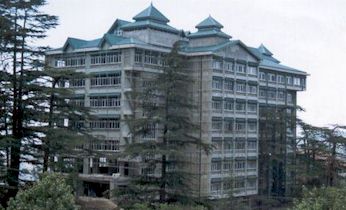Shimla: Burdened with growing litigation related to transfer of government employees, the Himachal Pradesh High Court after pointing out that transfers are made for extraneous reasons set out directions for amending the transfer policy and laid down the law with regard to powers of legislators to influence transfers.
Passing orders on a bunch of cases related to transfer of employees, the division bench of Justice Deepak Gupta and Justice Rajiv Sharma observed, “The time has come when we must lay down the law with regard to the powers of the legislators to influence transfers.
After citing various judgments the court observations about political patronage noted that elected representatives had a right to complain about working of an official but once a complaint had been registered, it needed to be sent to the administrative head for verification. “Then alone can the employee be transferred,” the judges decreed.
Elected representatives had no right to claim that a particular employee be posted at a particular station as it was the choice to be made by the administrative head, i.e. the executive and not by the legislators, the judges stated.
No transfer should be ordered at the behest of party workers or others who have no connection either with the legislature or the executive, the judges ordered.
Elsewhere in the order the judges note, “We have found that people directly approach the chief minister using political influence and patronage without first making a representation to the department concerned. This is a total violation of the conduct rules.”
Pulling out Rule 20 of the Central Civil Services (Conduct) Rules, 1964, the court reminded that the rule lays down that it will be misconduct for an employee to bring political pressure or get recommendation from others in matters relating to service.
The court after hearing the government lawyers argument about importance of elected representatives pointed out the constitutional scheme of independence of the legislature, the executive and the judiciary.
“We live in a democracy and our elected representatives under the constitution are to work in the legislature and not as administrators, the judges state.
The order states, “when the employees want a job then they are willing to join at any place. However, soon thereafter, political patronage is employed to get themselves transferred to particular place. There is more than sufficient material before the courts to prove that transfers are made for extraneous reasons without considering the administrative exigencies.”
Directing the government to amend its transfer policy by end of February 2013, the court asked the government to categorize all stations under different categories.
At present, there are only two categories, i.e. tribal/hard and other areas,” the judges observed. The court noted that people who are sent to tribal/hard areas find it very difficult to come back.
The court also asked that the state must have a database of all employees about the category of station served throughout the career.
The court noted that it was flooded with litigation filed by employees aggrieved by their transfer and sometimes, even by their non- transfer when they are not shifted out of tribal areas
As Editor, Ravinder Makhaik leads the team of media professionals at Hill Post.
In a career spanning over two decades through all formats of journalism in Electronic, Print and Online Media, he brings with him enough experience to steer this platform. He lives in Shimla.





The Honourable Court is correct and I am happy to see reality creeping into the system after much thought by diligent judges